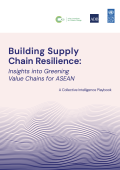
This case study highlights how Malaysia’s Greening Value Chain Programme offers lessons for helping ASEAN’s SMEs cut carbon, save costs and stay competitive.
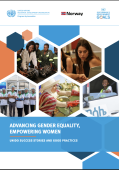
This collection of success stories highlights how women are leading change boosting access to clean energy, strengthening agribusinesses and improving global supply chains.
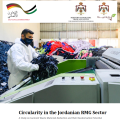
This study aims to find ways to reduce textile and garment waste by identifying opportunities for recycling, upcycling and reusing in Jordan's Al-Hassan industrial zone, and turning it into a valuable resource.
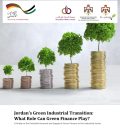
This study investigates the current and potential barriers to increasing the supply and demand of green finance, and its accessibility to the industrial sector in Jordan.
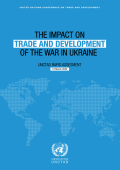
This report offers a rapid assessment of the impact of war in Ukraine on trade and development, and interrelated issues in the areas of finance, technology, investment and sustainable development.
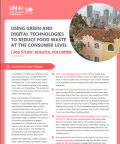
This case study is about using green and digital technologies for reducing food waste in Bogota, Colombia.
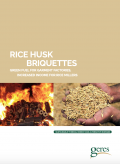
Cambodia is facing a major environmental threat because of deforestation resulting from forest conversion to agricultural land but also from the use of forest wood as fuel. However using agricultural residues, such as rice husk, can be considered carbon neutral since the CO2 released during the combustion is reabsorbed every year by the crops during the next growing season. International companies are therefore encouraging their garment suppliers in Cambodia to switch from unsustainable firewood to greener fuels such as rice husk briquettes.
Cambodia is facing a major environmental threat because of deforestation resulting from forest conversion to agricultural land but also from the use of forest wood as fuel. However using agricultural residues, such as rice husk, can be considered carbon neutral since the CO2 released during the combustion is reabsorbed every year by the crops during the next growing season. International companies are therefore encouraging their garment suppliers in Cambodia to switch from unsustainable firewood to greener fuels such as rice husk briquettes.
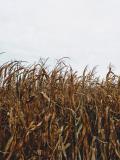
This paper discusses agriculture in Uganda and suggests that climate change could decrease output per adult by 20% by 2100, due to changes to food consumption and labor supply.
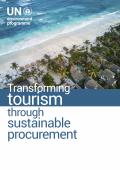
This case study discusses the role that sustainable procurement could play in transforming tourism by scaling up the market of sustainable products and services.
